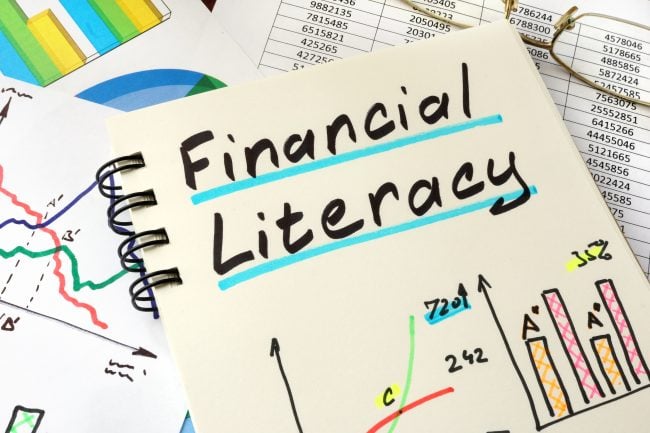 Source: AdobeStock
Source: AdobeStock
Credit unions prioritize financial literacy efforts year-round to help people improve their lives financially. It's part of our people-helping-people mission as not-for-profit financial cooperatives. However, Financial Literacy Month provides an opportunity to highlight some of the ways credit unions work together with lawmakers and educators to achieve financial well-being for all on federal, state and local levels.
CUNA, Leagues and credit union leaders are excited to see Rep. Mike Gallagher (R-Wis.) reintroduce the Student Empowerment and Financial Literacy Act. It would create a Department of Education grant program to promote financial literacy in kindergarten-12th grade schools, providing opportunities for financial education in every state.
Recommended For You
Credit union leagues across the country also prioritize efforts to better address financial literacy and education on the state level. There are 202 state bills either pending or passed relating to this issue. According to the Council for Economic Education, 23 states already require students to take a course in personal finance and 25 that require a course in economics to graduate. The Council's research shows that state requirements better ensure access to effective financial education for students from all walks of life and backgrounds.
Idaho's governor signed House Bill 92, requiring high schools in Idaho to provide a real-world finance class. The Oregon Senate is considering a bipartisan bill this session to require financial education and real-world life skills training in all high schools. If passed, students would earn half a credit in each track – higher education and career path skills with job interview, resume and job application preparation, and personal financial education focused on financial wellness. GoWest Credit Union Association and its member credit unions in Idaho and Oregon actively worked in support of these bills.
Alabama is close to the finish line with House Bill 164, to require public high school students to complete one credit of financial literacy and money management before graduation. It passed with unanimous support in the House and is now in the Senate for final passage, with strong support from the League of Southeastern Credit Unions and Alabama credit union leaders.
Connecticut credit unions are working with a coalition of supporters to pass Senate Bill 1165, An Act Concerning Financial Literacy Instruction. The bill would require half a credit in personal financial management and financial literacy before high school graduation, seeking to resolve economic inequities with financial preparation.
In Alabama, Connecticut, Idaho and Oregon, as with other state efforts before them, credit union advocates are proactively reaching out to state lawmakers. Their focus is to urge lawmakers, using their grassroots strength, to pass these bills and make the financial futures of young people a priority in their states.
State credit union leagues and credit union leaders play an important role in having their state leaders officially recognize financial literacy, and that doesn't just include passing legislation. Governors signed proclamations and lawmakers passed resolutions and designations for Financial Literacy and Financial Capability Months in California, Maine, Nebraska, Nevada, New Jersey, New Mexico and Pennsylvania – just to name a few.
Starting early on financial education makes a big difference, and credit unions work with young students to begin that path, while making it fun, too. As part of new Mexico's Financial Literacy Month events, New Mexico credit unions and the Credit Union Association of New Mexico teamed up with the New Mexico Credit Unions READ to Support Financial Literacy effort. Eighty-nine volunteers from 13 credit unions read to 208 classrooms and 4,317 elementary students. Each school received the book, "A Chair for My Mother," in either English or Spanish, as well as bilingual financial education curriculum to keep the financial lessons going long after the reading day ended.
Of course, these are just a few of the many ways credit unions work to help people of all ages build financial skills and strengths. No matter where someone lives, where they come from or how much money they have – credit unions are there to help. Credit unions maintain a commitment to serve people each and every day, and make sure they have every tool they need to achieve their financial dreams long after Financial Literacy Month is over.
 Jason Stverak
Jason Stverak Jason Stverak is Deputy Chief Advocacy Officer for Federal Government Affairs for CUNA in Washington, D.C.
© Touchpoint Markets, All Rights Reserved. Request academic re-use from www.copyright.com. All other uses, submit a request to [email protected]. For more inforrmation visit Asset & Logo Licensing.






